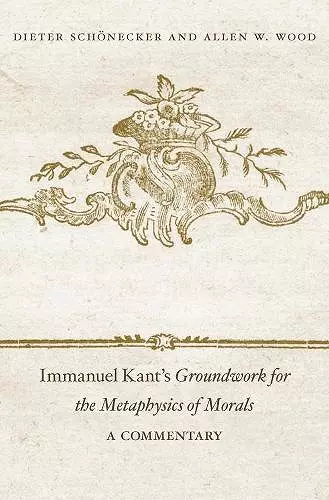Immanuel Kant’s Groundwork for the Metaphysics of Morals
A Commentary
Dieter Schönecker author Allen W Wood author
Format:Hardback
Publisher:Harvard University Press
Published:5th Jan '15
Currently unavailable, and unfortunately no date known when it will be back

A defining work of moral philosophy, Kant’s Groundwork for the Metaphysics of Morals has been influential to an extent far beyond what its modest length (roughly 75 pages) might suggest. It is also a famously difficult work, concerned with propounding universal principles rather than answering practical questions. As even professional philosophers will admit, first-time readers are not alone in finding some of its arguments perplexing.
Offering an introduction that is accessible to students and relevant to specialized scholars, Dieter Schönecker and Allen Wood make luminously clear the ways the Groundwork for the Metaphysics of Morals forms the basis of our modern moral outlook: that all human beings have equal dignity as ends in themselves; that every rational being is a self-governing agent whose morality freely derives from his or her own will; and that all rational beings constitute an ideal community, bound only by the moral laws they have agreed upon. Schönecker and Wood explain key Kantian concepts of duty, the good will, and moral worth, as well as the propositions Kant uses to derive his conception of the moral law. How the law relates to freedom, and the significance of the free will within Kant’s overall philosophy are rigorously interrogated. Where differing interpretations of Kant’s claims are possible, the authors provide alternative options, giving arguments for each. This critical introduction will help readers of the Groundwork gain an informed understanding of Kant’s challenging but central philosophical work.
Dieter Schönecker and Allen W. Wood highlight in this book Kant’s most important and moving ideas, above all his idea of the incomparable worth of human autonomy, while pulling no punches about the shortcomings of Kant’s arguments. They carefully explicate and disambiguate Kant’s central concepts and discuss in detail the most notorious problems of interpretation. Kant’s little book is dense and obscure at some of the most crucial points. Students always need a commentary, and this one is very welcome indeed. -- Paul Guyer, Brown University
ISBN: 9780674430136
Dimensions: unknown
Weight: unknown
248 pages